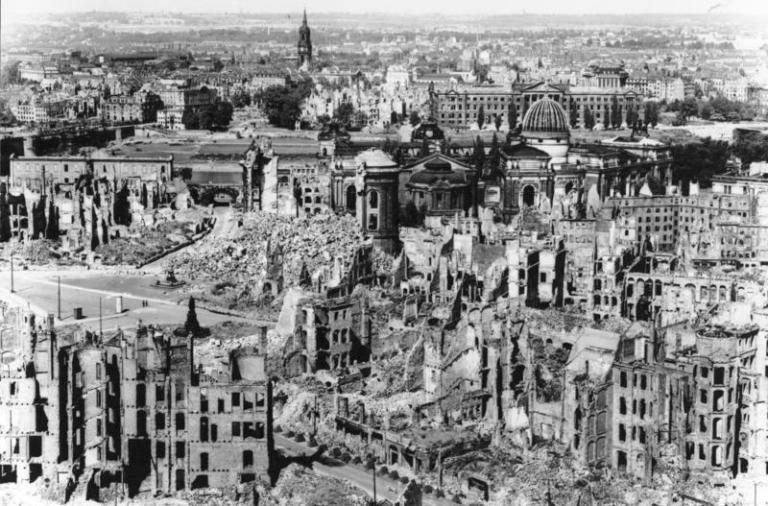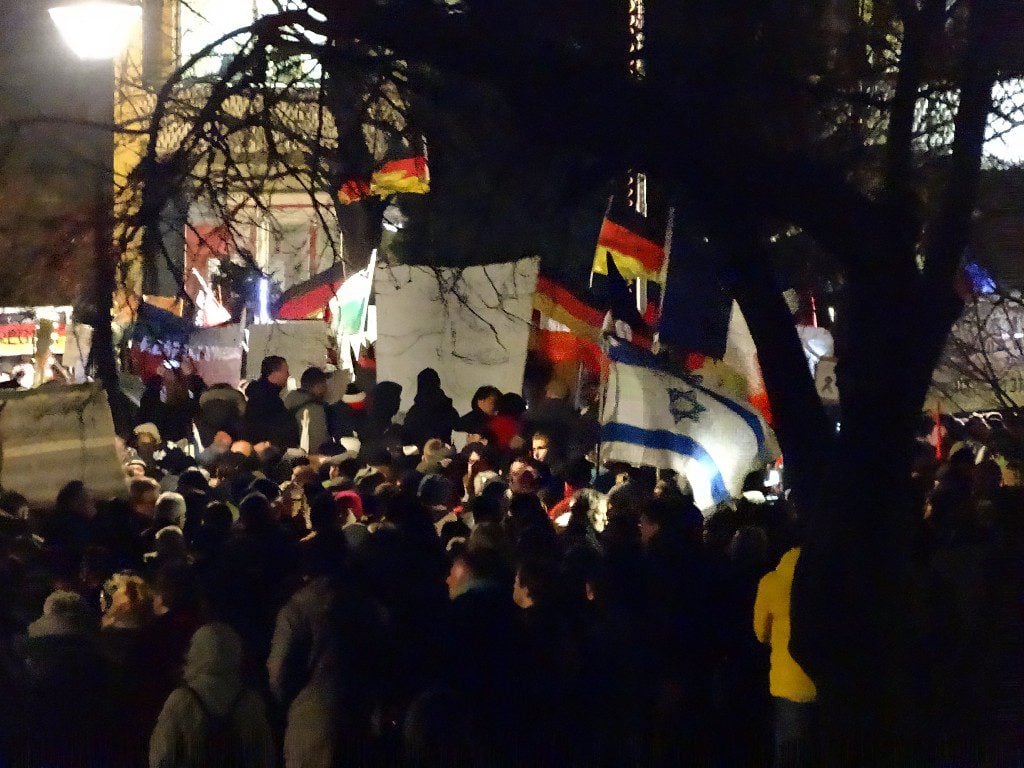Lots of spoilers here, so click away if you were thinking of checking this movie out from your local library — though, let’s face it, there are not too many people who browse the German movies section for 4 1/2 hour long TV miniseries for their weekend (and stay up way past their bedtime to watch it).
The basic premise of the miniseries, which aired on German TV in 2013, is this: five twentysomething friends meet in Berlin in the summer of 1941, before taking separate paths, with the plan to meet again at Christmastime. Two of the friends, Wilhelm and Friedhelm, are brothers, the older, an experienced officer, and the younger a bookish enlisted man, off to war in the East in the same unit. The third, Charlotte or Charly, has just passed her nurse’s exam and is about to join a military field hospital, near Wilhem, with whom she is secretly in love. The fourth, Greta, dreams of a singing career, and the fifth, Greta’s boyfriend, Viktor, is a tailor, and Jewish. Their paths diverge but continue to cross over the course of the movie.
Wilhelm is pragmatic and has experienced battle already, but he becomes cynical after watching his superiors shoot civilians, and later, after Stalingrad, is obliged to lead his men into a battle with no strategic significance and great loss of life. After this battle, the unit retreats but he is left behind and makes his way to a cabin in the woods, until he’s found by German troops, almost executed, and sent to a “punishment” group instead, where, in the closing days of the war, he kills his brutal commanding officer.
Friedhelm is initially fearful and hesitates to shoot, but ultimately becomes hardened. Along the way, in the same pointless battle that leads his brother to desert, he is shot near the heart, and is brought to the field hospital where Charly works; he is initially triaged as hopeless until Charly begs the doctor to save him, and he lives. He is sent home, but returns to the battle (not out of patriotism, but, the film suggests, because he can’t fit in at home any longer), is placed in a unit fighting partisans, during which time he is involved in an execution of civilian hostages, but also later kills his commanding officer to save Victor,
who, just before the DVD froze up, was given a false passport to leave Germany, and, at the first scene of the next chapter the DVD would let me watch, was on a train headed east, which he and a Polish woman managed to escape, whereupon they join the partisans, and participate in their operations, until, just before the unit is discovered and destroyed by the Germans, they conveniently kick him out for being Jewish, and he, too, in the last days of the war, makes his way to Berlin.
In the meantime, Greta has an affair with a Gestapo officer, who advances her career, but subsequently, when she threatens his marriage, arranges for a “tour” on the front lines, where she is briefly reunited with her friends, and has a closer encounter with the war than she planned for when the battle comes too close, her plane leaves without her, and she is briefly compelled to help in the hospital with Charly. She returns home, makes some defeatist comments on the war, and threatens to expose the Gestapo officer’s affair to his wife, so she is imprisoned.
All in all, I thought the movie was well-done, although the interesctions of its characters required a fair amount of suspension of disbelief, as well as the improbable ways their lives were saved (with two of them, in the end, to die in somewhat arbitrary ways at the end of the war) throughout the course of the movie.
After I watched it, I looked at what Wikipedia had to say, to get an answer to how Viktor ended up in the train (turned out, he was betrayed by the Gestapo officer), and I was surprised at how critical the reviews were, according to its summaries of those reviews. The movie received criticism for what it didn’t show, mostly.
Critics complained that it didn’t show the Holocaust — which seems a bit unfair; must every (German) film about World War II depict the Holocaust? Of course, they could have sent Viktor to Auschwicz rather than allowing him to escape the train, but that was the moviemaker’s choice. Wikipedia reports that they had originally intended for Viktor to make it to New York, then return as a soldier in the U.S. army, but that budget constraints inspired a script re-write. I can only imagine how much more an Auschwitz subplot would have added to the cost. In fact, I half expected Greta to be sent to Ravensbruck, rather than stay in the prison, but, in hindsight, a prison cell is a much cheaper scene to film than a concentration camp.
The Poles were angry that the partisan unit it depicted was antisemitic, as they pointed out that there was even a unit of the partisan underground army devoted to rescuing Jews. Is this fair? So far as I understand, the Poles were a mixed bag, with heroes and villians. Falling in with an antisemitic group worked with the plot, because each of the five characters were portrayed as on their own, rather than having comrades, and Viktor experiences this through the partisan unit not trusting him as a German with no ready explanation of why he’s in Poland; it also worked as a device to have him expelled just before the attack on the unit.
And the larger criticism is that it shows these five characters as victims, rather than as willing participants in Hitler’s schemes. That’s not entirely correct, as Charly the nurse is initially shown very enthusiastically ready to do her patriotic duty, agreeing with the cause of Lebensraum, and turns in the local civilian nurse after she learns she’s Jewish, though she regrets this afterwards.
But consider this review from the Spectator, about the BBC airing.
If you’re going to take on a subject as big and harrowing as the Eastern Front, you owe it to history not to cheat or pull your punches. Sure, we see the Wehrmacht committing atrocities — using Russian civilians as human minesweepers; shooting captured NKVD commissars in the back of head; rounding up Jews. But all too often, it’s as if the sensitivities of the German viewer are being salved with glib let-outs — in the case of the prisoner shooting, for example, by showing how much Wilhelm loathes having to do it; and in the case of the five heroes by making one of them a nice Jewish chap whom they all like. (Openly. In 1941. Right.)
Surely the key point about being a German in the second world war was this: regardless of whether you were good or bad, rampantly philo-Semitic or violently Nazi, you were chewed up by Hitler’s machine all the same. It was acquiesce or die. Often, acquiesce and die. No German serving on the Eastern Front, for example, would have been allowed the moral freedoms with which the scriptwriter has indulged the character of Friedhelm: he’s a 21st-century German parachuted into a period where he wouldn’t have survived more than a few seconds.
The brave and true thing for Generation War to have said is that within every one of us — given the right circumstances — lies the capacity to behave as the Germans did in the second world war. Very few of us would have taken a principled, Stauffenberg-style stand because most people just don’t. But even now, 70 years after the war’s end, the Germans are still so mired in guilt and self-hatred that they can’t admit it. If you believe, as I do, that failing to understand your past condemns you to repeat it, this is not an encouraging sign.
Now, was it unrealistic that the fifth friend was Jewish? Yes, but no more unrealistic than plenty of other ways in which movies establish premises to hook their viewers. I’m also not sure what the reviewer means by Friedhelm’s “moral freedoms” — he’s not shown as a principled “objector” so much as simply fearful of the battles.
And it kind of misses the point of moviegoing — a movie about five unlikeable automatons, blindly enthusing about Hitler for four and a half hours, would be unwatchable. A movie of unrelenting horror, likewise, wouldn’t be suited for a general TV-watching audience. And this reviewer seems to want to deal in extremes — because the film doesn’t show any of its main characters as dedicated Nazis, it’s not acceptable.











